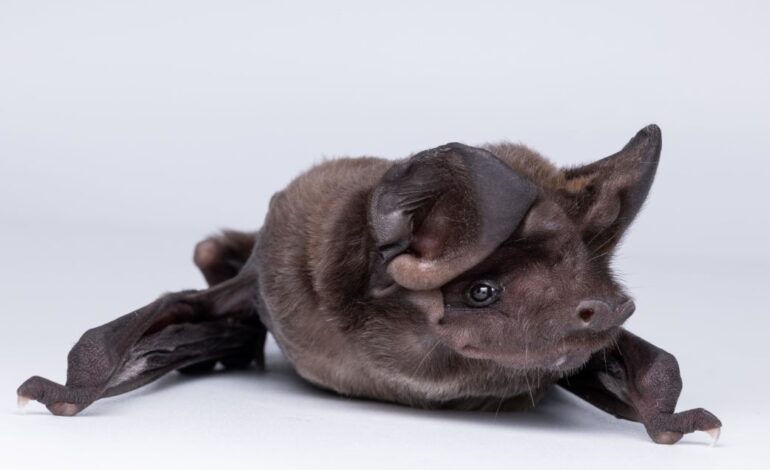Conservationist Fights for Bats, Nature’s Unappreciated Allies

Bats, often misunderstood and unfairly maligned, face a significant decline in populations worldwide. According to Rodrigo Medellín, a senior professor of ecology at the University of Mexico, these creatures play crucial roles in ecosystems, including pest control, pollination, and seed dispersal. Medellín has dedicated his career to changing the negative perceptions surrounding bats, advocating for their conservation through education and research.
Medellín’s interest in bats began at the age of 13 when he first held one in his hands. He describes the experience as transformative, stating, “That’s when I decided to dedicate my life to their study and protection.” His passion has led him to create the Latin American Network for Bat Conservation and Global South Bats, an international network of bat scientists. He has also partnered with the Rolex Perpetual Planet Initiative, an organization advocating for environmental sustainability.
Globally, there are over 1,400 bat species, comprising about one-fifth of all known mammal species. Bats are the only mammals capable of true powered flight, utilizing advanced echolocation to navigate and hunt in the dark, with some species able to detect objects as small as a human hair. Despite their remarkable abilities, bats reproduce slowly, typically giving birth to only one pup per year. This reproductive rate makes it challenging for populations to recover from declines.
Medellín insists that bats are among the “most unfairly treated animals on Earth.” In Western cultures, they are often associated with evil and darkness, linked to vampires and supernatural folklore. In contrast, cultures in the East view bats more positively, symbolizing good fortune and happiness. The stigma has worsened in light of the Covid-19 pandemic, as bats have been implicated in the virus’s origins. Medellín counters these misconceptions, stating, “Bats are certainly not fuller of diseases than your dog or cat. That has been horribly exaggerated.”
One of the most critical functions bats serve is pest control. A single species along Mexico’s northern borders, for example, can number up to 30 million individuals, consuming approximately 300 tons of insects each night. This natural pest management is vital for agriculture and ecosystem health. Additionally, fruit-eating bats are essential for seed dispersal, aiding forest regeneration and plant diversity. Medellín explains, “By dropping seeds far from the parent tree, they help regenerate forests, maintain plant diversity, and support the life cycles of countless other organisms.”
Despite their ecological importance, bat populations face numerous threats primarily due to human activities. Habitat destruction, the impact of wind turbines, pesticide use, and diseases such as white-nose syndrome have severely affected their numbers. Many species are now classified as endangered or threatened. Medellín warns, “Imagine what happens if we lose bats overnight. Without them, crops would be ravaged by hungry insects, and mosquito populations would surge, drastically changing our way of life.”
Through his efforts, Medellín aims to foster a deeper understanding of bats’ essential roles in ecosystems. He believes that increased awareness can transform fear into fascination. Initiatives such as bat-friendly agave farming and international conservation networks are part of his strategy to protect bat populations and highlight their ecological contributions.
“My experience shows that when I present people with facts, images, and evidence, they develop a fondness for bats,” he says. He invites those who still harbor fears to learn more about these creatures, believing that knowledge can bridge the gap between misunderstanding and appreciation. “They are going to win your heart,” he adds, emphasizing the importance of reframing the narrative around bats.
As the fight for bat conservation continues, Medellín exemplifies the commitment needed to protect these vital animals. His journey illustrates the potential for change through education and empathy, urging society to reconsider its view of these remarkable flying mammals.






